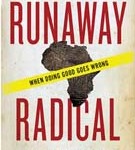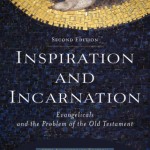I read Unbroken while I was in grad school and was floored by the total insanity of the story, as many American moviegoers now are. Wait a minute, I thought, this guy survives in the ocean for two months? And then he lives in an internment camp for two years? Come on!
Oh, and he was also an Olympian. No big deal.
Any one of these events would be enough adventure for a feature film. But the most remarkable part of Louie Zamperini’s remarkable story, to me, is that our hero went on to live a relatively happy life after the war.
The book focuses on Zamperini’s survival first in the open ocean and later in the demoralizing Japanese internment camp. The movie does the same, saving most of the aftermath for an uplifting slideshow at the end of the film.
Some viewers feel that this condensation leaves out an important aspect of Zamperini’s life: his post-war conversion to evangelical Christianity.
Louie dug out the Bible that had been issued to him by the air corps and mailed home to his mother when he was believed dead. He walked to Barnsdall Park, where he and Cynthia had gone in better days, and where Cynthia had gone, alone, when he’d been on his benders. He found a spot under a tree, sat down, and began reading.
Resting in the shade and stillness, Louie felt profound peace.
Though Zamperini’s initial reluctance to go listen to fiery young Billy Graham and his eventual conversion experience take up only seven

pages of a 400-page book, they change the trajectory of the story. Zamperini had been on the verge of divorce; he reconciles with his wife, Cynthia. He suffered from nightmares about his torturer at the internment camp; the flashbacks end and he learns to forgive his captor. He pours his liquor down the sink.
Zamperini’s conversion is the hinge on which the rest of the twenty or so pages of the book turns. Instead of a tragic ending, the book leaves us with a happy taste in our mouths: Good guys really do win.
Some Christians responded to the omission of this moment from the movie with disappointment. Evangelist Greg Laurie told the Christian Post
To me, the most amazing part of his story is not just surviving the incomprehensible beatings in the Japanese internment camp, or being adrift at sea for over 47 days. It was the fact that Louis was able, because of his conversion and newfound Christian faith, to go back to Japan to the very guards who mistreated him and forgive them, as well as tell them about Jesus Christ.
I agree; Zamperini attributed his life turn-around to Christianity. That shows the power of Christianity to change a life.
Still, as a writer, I know that sometimes you have to cut things. To much of America, Billy Graham is a caricature. Popping him in after two hours of war-driven plot twists surmounted by one man’s tenacity might not make sense to non-evangelical-Christian America.
Luckily, Hollywood has a solution: a for-Christians-only DVD with 90 minutes of extra footage about Zamperini’s life and conversion after the war.
Although I agree in principle that Zamperini’s story is incomplete without his Christian epiphany, I can’t help but feel that this solution is taking advantage of Christians who are annoyed by its omission. Ideally, I’d like to see a mainstream movie show how religion can change a person–the same way that American History X showed the devastating power of ne0-nazism over one individual.
Any takers?
















